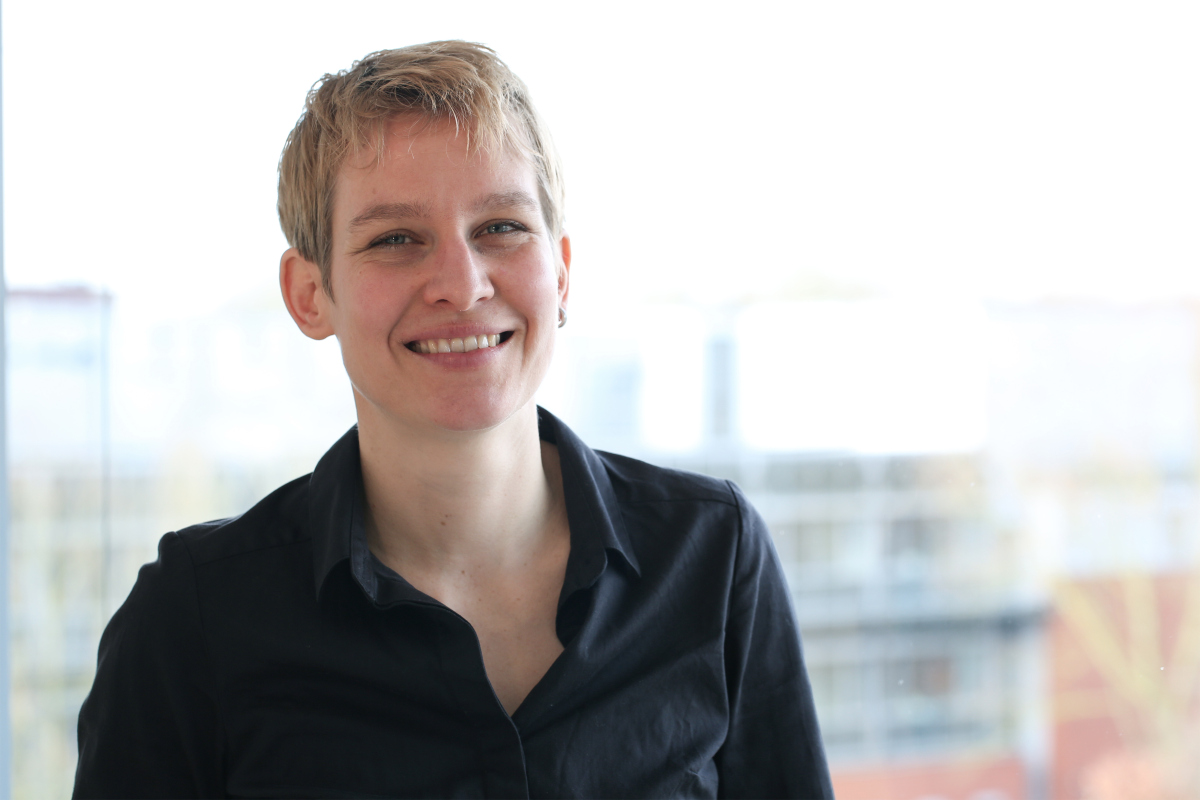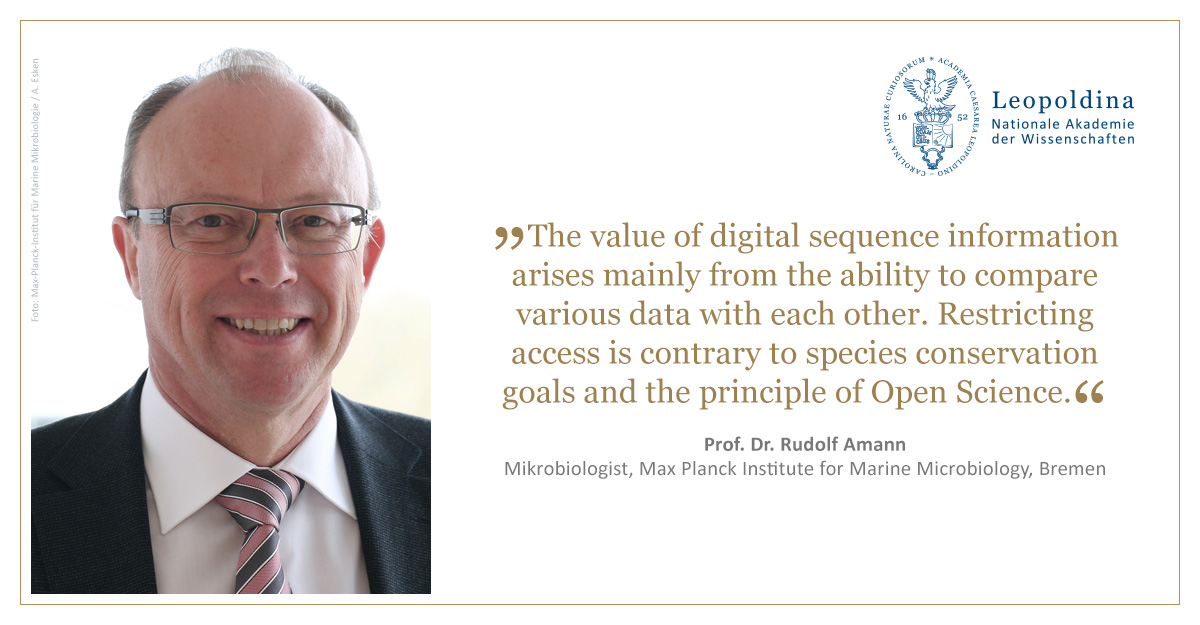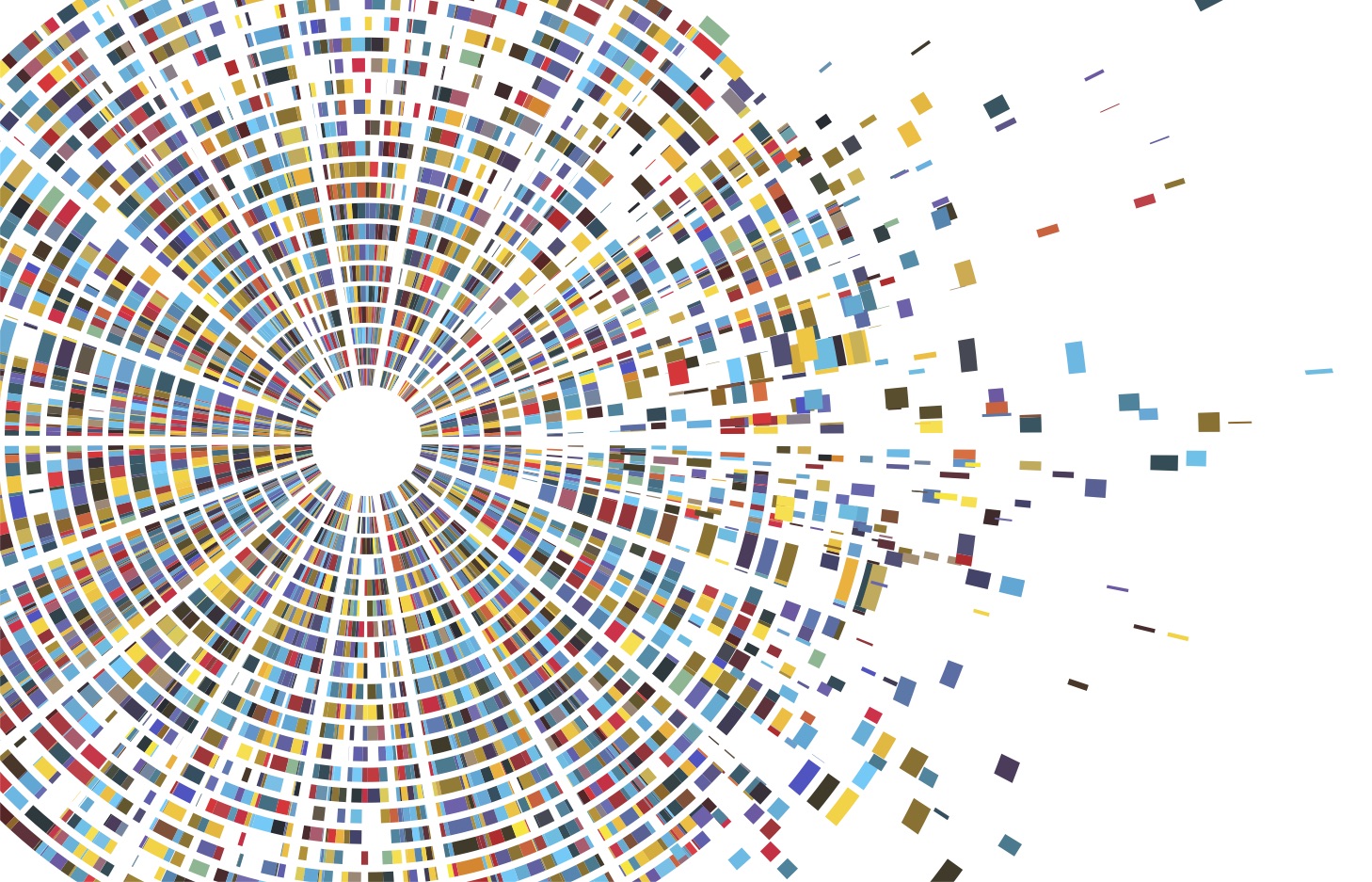- Press Office
- Press releases 2021
- Leopoldina advocates free access to gene databases for researchers
Leopoldina advocates free access to gene databases for researchers
To enable free research worldwide, DSI databases must continue to be openly accessible, states the Leopoldina in its ad hoc statement. The coronavirus pandemic has undoubtedly shown that the exchange of sequence information, in this case of novel pathogens, contributes significantly to scientific progress. In addition, DSI databases are a key tool for biodiversity conservation because, for example, changes in ecosystems can be tracked with their assistance. “The value of digital sequence information arises mainly from the ability to compare various data with each other. Restricting access is contrary to species conservation goals and the principle of Open Science,” says Leopoldina member and co-author of the ad hoc statement Prof. Dr. Rudolf Amann of the Max Planck Institute for Marine Microbiology in Bremen (Germany). Access restrictions to sequence databases would also have far-reaching negative consequences for natural and active substance research, for example, antibiotic development.
The experts are in favor of equitable sharing of benefits arising from the use of biological diversity. They emphasize that access to sequence information for research should not be restricted by fees or that research funds should not be used for monetary benefit sharing. The situation is also complicated by the fact that, to date, information on the geographical origin of the data is missing for almost half of all Digital Sequence Information. The scientific community should therefore develop solutions to make this information traceable in the databases in the future. The specific design of an international benefit-sharing scheme under the Nagoya Protocol must be done in a way that does not jeopardize either biodiversity conservation or Open Science, according to the authors of the ad hoc statement.
"The trade-off between the UN goal of Open Science and a restriction of free access to digital sequence information under the Nagoya Protocol has great significance for our research. Free access to databases must be preserved," emphasizes Rudolf Amann, Director of the Max Planck Institute for Marine Microbiology.
The ad hoc statement "Maintaining open access to Digital Sequence Information" is published here.
About the German National Academy of Sciences Leopoldina
As the German National Academy of Sciences, the Leopoldina provides independent science-based policy advice on matters relevant to society. To this end, the Academy develops interdisciplinary statements based on scientific findings. In these publications, options for action are outlined; making decisions, however, is the responsibility of democratically legitimized politicians. The experts who prepare the statements work in a voluntary and unbiased manner. The Leopoldina represents the German scientific community in the international academy dialogue. This includes advising the annual summits of Heads of State and Government of the G7 and G20 countries. With 1,600 members from more than 30 countries, the Leopoldina combines expertise from almost all research areas. Founded in 1652, it was appointed the National Academy of Sciences of Germany in 2008. The Leopoldina is committed to the common good.
Get in touch
Managing Director
Department of Molecular Ecology
MPI for Marine Microbiology
Celsiusstr. 1
D-28359 Bremen
Germany
|
Room: |
2221 |
|
Phone: |

Head of Press & Communications
MPI for Marine Microbiology
Celsiusstr. 1
D-28359 Bremen
Germany
|
Room: |
1345 |
|
Phone: |


